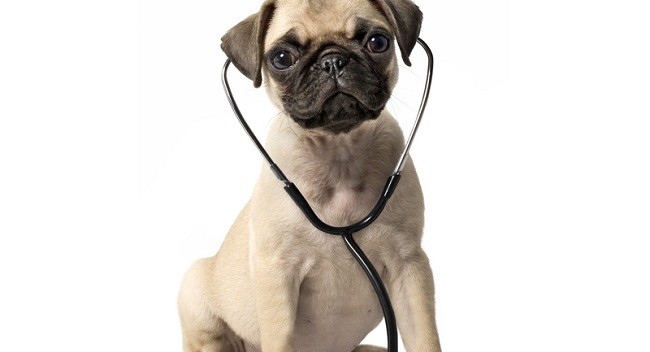Your doggy might have asthma and you may not even know it. It's important to find out what you can do in order to save your pup's life and make sure he gets the right treatment! Here is what you need to look out for if your doggy has an asthma attack.
Asthma, which is also referred to as allergic bronchitis, bronchial asthma, or chronic bronchitis, is a condition in which a pet has recurrent attacks of wheezing, shortness of breath, and difficulty breathing.
Causes and Triggers
Airway constriction in pets can occur for no obvious reason, or it can be triggered by something in the environment the animal has inhaled, or even something your pet has eaten.Grasses, pollen, ragweed
Mold and mildew
Air pollution, including smog and smoke from wildfires or crop burning
Household chemicals and cleaning products, including carpet cleaners
Fertilizers and pesticides
Dust mites
Home remodeling products, including paint
Aerosol sprays, including room air fresheners
Animal dander from a new or visiting pet
Cigarette or fireplace smokeAsthma Symptoms
Pets with asthma can't draw a deep breath. Symptoms include a dry hack that often sounds like gagging or retching, as well as:Wheezing, which can sound like a high-pitched sigh or whistle
Pale mucous membranes, especially bluish gums
Labored breathing
Lethargy
Open-mouth breathingDiagnosing Asthma
Symptoms of canine or feline asthma are seen in other diseases as well, so it’s extremely important to get an accurate diagnosis.Other conditions that can mimic asthma symptoms are systemic allergies, including food allergies, and also heartworm infection.
Sometimes, it's quite obvious by simply looking at the animal that he's having trouble breathing. The breaths are rapid and shallow, and the abdomen is working very hard to push air back out.
Another test that can help eliminate or confirm potential causes of acute or chronic coughing include a bronchoscopy, which is a procedure that involves passing a tiny camera down the bronchi to visualize the inside of the lungs and collect a tissue sample.
Since diagnosing asthma in a pet isn't always straightforward, any information you can provide to the veterinarian will be helpful.
Treatment Options
If your pet is having an asthma-related crisis, your vet or emergency animal clinic will administer a small dose of epinephrine to very quickly resolve the asthma attack and save your pet's life. Pure (100 percent) oxygen will also be given at the same time. In some acute situations, inhalant treatments with a nebulizer with or without additional medications are also required.The goal of long-term treatment for asthma is to identify and eliminate all triggers in your pet's environment if possible. In cases of chronic asthma, complete resolution of the cough is almost never possible. In those cases, the goal is to reduce the frequency and severity of the cough, so that your pet is more comfortable.
Pets with life-threatening asthma symptoms typically require at least some drugs to save their lives and reduce the intensity of attacks.
Pet Asthma Prevention Tips
Don't smoke. Give up smoking entirely, or at a minimum give it up around your pet and don't let others smoke around him. Second-hand smoke is a major trigger for asthma in sensitive pets.
Give up using your fireplace.Reduce or eliminate all household sprays, including anything aerosolized.
Get rid of scented plug-ins, candles, incense, heated potpourri — all products that give off an aroma, even if they’re natural.
Switch from chemical household cleaners to green cleaners.
If you have pet pest problems, use an all-natural, safe pest repellent for flea and tick control.
Consider investing in an air purifier for your home and place it where your pet spends most of his time. Replace your HVAC air filters regularly.
If your animal companion is overweight, get her down to a healthy size.
Feed a balanced, species-appropriate diet.
Once your pooch is properly diagnosed and treated for his asthma, you'll know how to keep him the safest! With less worry, you and your pooch can enjoy your days together again.
For more information on canine asthma and how to properly diagnose and treat your pet, visit Healthy Pets.









